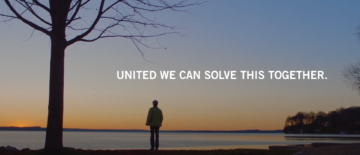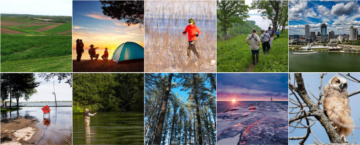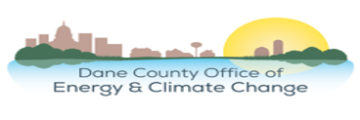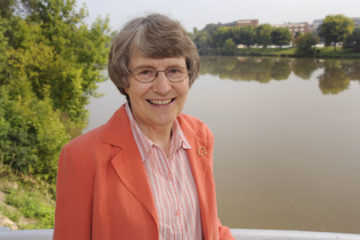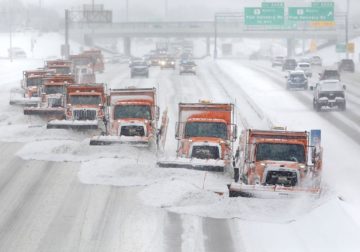View Past Speakers and Topics – C4C
February 8, 2022 7:30pm
Wolves, People, Domestic Animals, and Deer
Dr. Adrian Treves, Professor of Environmental Studies, UW-Madison
 Coexistence with wildlife has become increasingly important and contentious as humans encroach on traditional wild habitat around our state. Dr. Adrian Treves will address the current debate over wolves and their interactions with people, domestic animals and deer. Building on ecological and social scientific data he and colleagues have collected over two decades, he will discuss our coexistence with wildlife commonly around us. He will explain how to differentiate science from value judgment in claims from agencies and interest groups, and how to distinguish the best wildlife science from the rest following principles of ‘Open Science’. Adrian will also suggest how each of us can help promote a more just and healthy relationship to nature during the present extinction and global crisis.
Coexistence with wildlife has become increasingly important and contentious as humans encroach on traditional wild habitat around our state. Dr. Adrian Treves will address the current debate over wolves and their interactions with people, domestic animals and deer. Building on ecological and social scientific data he and colleagues have collected over two decades, he will discuss our coexistence with wildlife commonly around us. He will explain how to differentiate science from value judgment in claims from agencies and interest groups, and how to distinguish the best wildlife science from the rest following principles of ‘Open Science’. Adrian will also suggest how each of us can help promote a more just and healthy relationship to nature during the present extinction and global crisis.
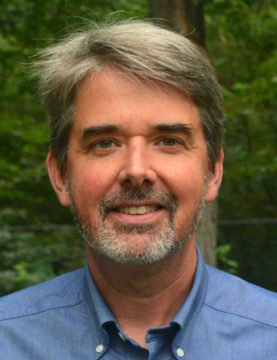 Adrian Treves is a Professor of Environmental Studies at the University of Wisconsin-Madison and has been director of the Carnivore Coexistence Lab since 2007. For 27 years, his research has focused on ecology, law, and human dimensions of ecosystems in which crop and livestock ownership overlaps the habitat of carnivores from coyotes up to grizzly bears. Based on his independent research, Adrian advocates for future generations of all life, for scientific integrity, and for sovereign publics worldwide. He studies and speaks about the public trust doctrine and intergenerational equity around the world. He earned his PhD at Harvard University in 1997 and has authored over 130 scientific papers on predator-prey ecology or conservation.
Adrian Treves is a Professor of Environmental Studies at the University of Wisconsin-Madison and has been director of the Carnivore Coexistence Lab since 2007. For 27 years, his research has focused on ecology, law, and human dimensions of ecosystems in which crop and livestock ownership overlaps the habitat of carnivores from coyotes up to grizzly bears. Based on his independent research, Adrian advocates for future generations of all life, for scientific integrity, and for sovereign publics worldwide. He studies and speaks about the public trust doctrine and intergenerational equity around the world. He earned his PhD at Harvard University in 1997 and has authored over 130 scientific papers on predator-prey ecology or conservation.
Nov 9, 2021 at 7:30pm – Online Event
Fixing Climate Change with Faith, Hope & Love
Bob Inglis, Executive Director, republicEN.org
Mr. Inglis will draw on his experience as a conservative member of the U.S. Congress from South Carolina in coming to grips with climate change and the personal price he paid for his views. Since his legislative career, he has increasingly raised his efforts and provides encouragement and support for all people to become personally committed in this effort, especially addressing the point of view of conservatives.
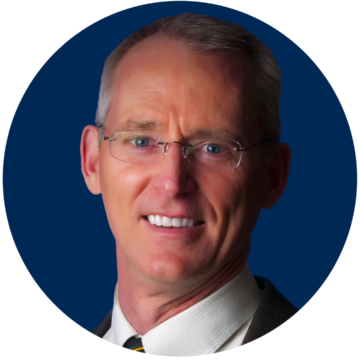
As a first-time political candidate in 1992, Mr. Inglis was elected to the U.S. Congress from South Carolina. After that term, he unsuccessfully challenged U.S. Senator Fritz Hollings and returned to the practice of commercial real estate law in Greenville, S.C. In 2004, he was reelected to Congress until losing his seat in the South Carolina Republican primary of 2010. He began promoting free enterprise action on climate change full time and launched the Energy and Enterprise Initiative (“E&EI”) at George Mason University in July 2012. A year later, he rebranded E&EI as republicEN.org which is today a 501(c)(3) educational initiative at George Mason University in Virginia and a growing grassroots community of over 10,000. republicEN.org educates, recruits and organizes conservative voices for action on climate change. Inglis’ many honors for climate change work include receiving the John F. Kennedy Profile in Courage Award, appearing in the film “Merchants of Doubt” and in the Showtime series “Years of Living Dangerously,” and giving two TEDx talks. A graduate of Duke University and Virginia School of Law, he has served as Resident Fellow at Harvard, Duke and the University of Chicago. Today Inglis continues his dedication to building an #EcoRight movement to apply conservative principles to climate action.
Oct 12, 2021 at 7:30pm – Online Event
Wisconsin’s Future: Living in a Warmer World
Featuring Daniel Vimont, Director, UW Nelson Institute for Climatic Research
Wisconsin is feeling the effects of our changing climate. And, our communities are already taking action to reduce its impacts. Dr. Vimont will discuss some of the historical changes we’ve experienced, and what we can expect in the coming decades. He will focus on recent results from the Wisconsin Initiative on Climate Change Impacts (WICCI) Second Assessment Report, to spark conversation about actions we can take to adapt to our changing climate. Please bring questions and stories of what you have experienced to discuss with Dan.
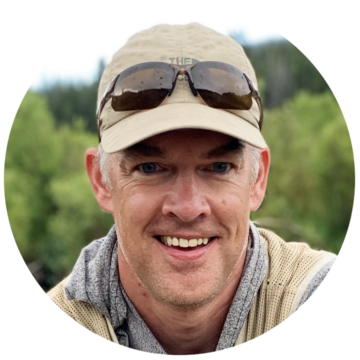 Dr. Daniel Vimont is Professor of Atmospheric and Oceanic Sciences, and Director of the Nelson Institute Center for Climatic Research at the University of Wisconsin-Madison. His research focuses on the causes and consequences of climate fluctuations and climate change, at global and regional scales. In the Midwest, he participates in a variety of groups that identify local impacts of climate change. For example, he co-directs the Wisconsin Initiative on Climate Change Impacts (WICCI), which engages citizens, private and public decision-makers, and scientists in the region to generate and share information that can foster solutions to climate change in Wisconsin.
Dr. Daniel Vimont is Professor of Atmospheric and Oceanic Sciences, and Director of the Nelson Institute Center for Climatic Research at the University of Wisconsin-Madison. His research focuses on the causes and consequences of climate fluctuations and climate change, at global and regional scales. In the Midwest, he participates in a variety of groups that identify local impacts of climate change. For example, he co-directs the Wisconsin Initiative on Climate Change Impacts (WICCI), which engages citizens, private and public decision-makers, and scientists in the region to generate and share information that can foster solutions to climate change in Wisconsin.
April 20, 2021 at 7:30pm – Online Event
Extreme Weather and Climate Change
Dr. Stephen Vavrus
UW-Madison
Nelson Institute for Climatic Research
Wisconsin and the rest of the country have experienced an overall increase in extreme weather during recent decades. More extreme rainfall accounts for much of this trend, including some high-profile events such as the August 2018 record deluge in the Madison area. Climate models project a greater frequency and intensity of heavy rainfalls and heatwaves in Wisconsin and elsewhere, pointing to an urgent need for adaptation strategies. Improvements in climate modeling are allowing greater confidence in predicting and attributing extreme weather occurrences. This presentation will highlight the major changes expected in extreme weather-related to ongoing climate change.
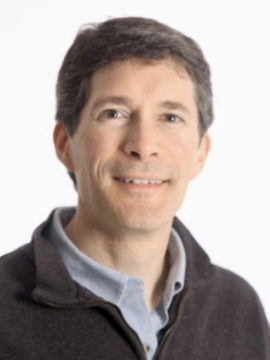 Steve Vavrus is a Senior Scientist in the Nelson Institute Center for Climatic Research at the University of Wisconsin-Madison. He uses computer climate models and observational data to understand how our climate is changing across the world, including the Arctic and more locally in Wisconsin. Extreme weather events are an important theme of his research, particularly how they might be affected by climate change. Steve is co-director of the Wisconsin Initiative on Climate Change Impacts (WICCI) and has been a long-time member of its Climate Working Group. He is also Coordinator of the Yahara Watershed Academy, an educational and leadership training program that promotes actionable sustainability in the Madison area.
Steve Vavrus is a Senior Scientist in the Nelson Institute Center for Climatic Research at the University of Wisconsin-Madison. He uses computer climate models and observational data to understand how our climate is changing across the world, including the Arctic and more locally in Wisconsin. Extreme weather events are an important theme of his research, particularly how they might be affected by climate change. Steve is co-director of the Wisconsin Initiative on Climate Change Impacts (WICCI) and has been a long-time member of its Climate Working Group. He is also Coordinator of the Yahara Watershed Academy, an educational and leadership training program that promotes actionable sustainability in the Madison area.
March 23, 2021 at 7:30pm – Online Event
Wisconsin DNR: Watchdog for Natural Resources Protection and Restoration
Todd Ambs
Wisconsin DNR
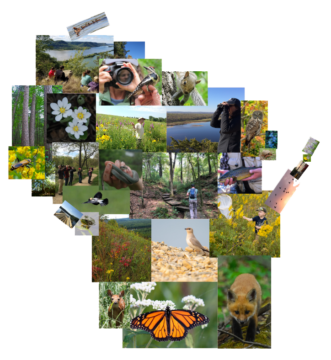 Statewide, DNR’s workforce of 4,000 manages a vast swath of policy and regulatory responsibilities that directly affect the population at many levels. In Wisconsin, all environmental questions come under this agency, broadly including water, forestry, wildlife – and everything from parks and outdoor recreation, conservation, regulating CAFOs and deer populations, flood and invasive species management, hunting and fishing permits to air quality and waste management regulation.
Statewide, DNR’s workforce of 4,000 manages a vast swath of policy and regulatory responsibilities that directly affect the population at many levels. In Wisconsin, all environmental questions come under this agency, broadly including water, forestry, wildlife – and everything from parks and outdoor recreation, conservation, regulating CAFOs and deer populations, flood and invasive species management, hunting and fishing permits to air quality and waste management regulation.
Does it matter how this environmental “watchdog” sees its role in protecting our natural heritage and preparing for a future threatened by climate change and extreme weather? Many Wisconsinites are concerned about state and federal policy directions over the past decade. Todd Ambs’ position and long history in (OH and WI) government and environmental policy make him well positioned to assess what those changes have meant to land and water stewardship in Wisconsin and what practices and priorities have developed under the Evers administration. Ambs will address our questions and concerns about DNR’s impact on the health of our environment, the influence of science on decision-making and the work being done to combat imminent and long-term challenges.
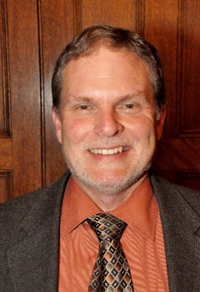 Todd Ambs, Deputy Director, Wisconsin Department of Natural Resources Previously, Ambs has worked in the environmental policy field for more than 30 years, most recently as the campaign director for Healing our Waters-Great Lakes Coalition. From 2003-2010, he was the DNR’s Water Division administrator, where he was lead negotiator for the State of Wisconsin during the development of the Great Lakes Compact. Ambs serves and has served on numerous state and regional conservation-related boards, councils and commissions.
Todd Ambs, Deputy Director, Wisconsin Department of Natural Resources Previously, Ambs has worked in the environmental policy field for more than 30 years, most recently as the campaign director for Healing our Waters-Great Lakes Coalition. From 2003-2010, he was the DNR’s Water Division administrator, where he was lead negotiator for the State of Wisconsin during the development of the Great Lakes Compact. Ambs serves and has served on numerous state and regional conservation-related boards, councils and commissions.
January 12, 2021 at 7:30pm – Online Event
Everyone Has a Role: Dane County’s Climate Action Efforts
Kathy Kuntz, Director, Dane County Office of Energy & Climate Change
With Remarks by Joe Parisi, Dane County Executive
In April 2020 Dane County issued an ambitious community-wide Climate Action Plan to cut all greenhouse gas emissions in Dane County in half by 2030. It is consistent with the goals of the Intergovernmental Panel on Climate Change on actions needed to avoid catastrophe. The priority now is to implement the plan—to reduce emissions from buildings, transportation and other sources.
As the County’s implementing officer, Kathy Kuntz is leading the efforts to turn the plan into action. She will discuss the overall plan, early signs of progress and the challenges ahead for local leadership to accelerate progress. Kathy has suggestions for individuals and businesses to do their part to help achieve the ambitious goal for greenhouse gas reduction. We are fortunate to have County Executive Joe Parisi to explain his high level commitment to addressing climate change in Dane County.
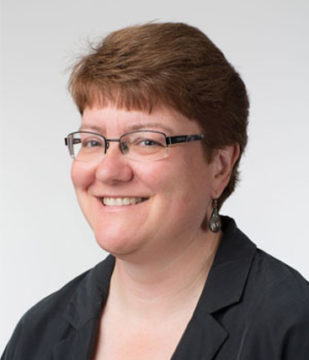 Kathy Kuntz has almost 30 years of experience helping people adopt sustainable practices. As Director of Dane County’s Climate Action Plan, she strives to facilitate choices that help achieve our climate goals for everyone in Dane County. The previous ten years Kathy led Cool Choices where she worked with governments and private businesses on sustainability efforts. Before that she led Focus on Energy, Wisconsin’s statewide energy efficiency and renewable energy program. Kathy has a Bachelor’s degree from the University of Minnesota, a Master’s from UW-Madison, and a reputation for getting results.
Kathy Kuntz has almost 30 years of experience helping people adopt sustainable practices. As Director of Dane County’s Climate Action Plan, she strives to facilitate choices that help achieve our climate goals for everyone in Dane County. The previous ten years Kathy led Cool Choices where she worked with governments and private businesses on sustainability efforts. Before that she led Focus on Energy, Wisconsin’s statewide energy efficiency and renewable energy program. Kathy has a Bachelor’s degree from the University of Minnesota, a Master’s from UW-Madison, and a reputation for getting results.
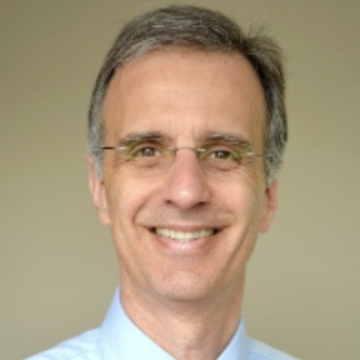 Joel Parisi, Dane County Executive. In 2017, County Executive Parisi established the Dane County Office of Energy and Climate Change and the Council on Climate Change to further the county’s efforts. The Office leads public and private efforts to implement strategies in the community. It issued the county’s comprehensive Climate Action Plan (CAP) in 2020. The Office is now engaging stakeholders and implementing CAP recommendations.
Joel Parisi, Dane County Executive. In 2017, County Executive Parisi established the Dane County Office of Energy and Climate Change and the Council on Climate Change to further the county’s efforts. The Office leads public and private efforts to implement strategies in the community. It issued the county’s comprehensive Climate Action Plan (CAP) in 2020. The Office is now engaging stakeholders and implementing CAP recommendations.
November 10, 2020 at 7:30pm – Online Event
Lessons in Climate Adaptation & Resilience from Wisconsin Communities: A Call to Action
Megan Levy
Wisconsin Office of Energy Innovation, Wisconsin Public Service Commission
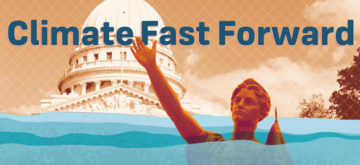 Megan Levy will provide an introduction to Wisconsin’s Office of Energy Innovation, as well as updates on the progress of the Energy Independent Communities program and on state energy security planning efforts. Megan will share some of the climate mitigation and adaptation strategies gleaned from the recent Wisconsin Academy of Sciences Arts and Letters “Climate Fast Forward!” Conference.
Megan Levy will provide an introduction to Wisconsin’s Office of Energy Innovation, as well as updates on the progress of the Energy Independent Communities program and on state energy security planning efforts. Megan will share some of the climate mitigation and adaptation strategies gleaned from the recent Wisconsin Academy of Sciences Arts and Letters “Climate Fast Forward!” Conference.
Billions of Federal dollars are spent every year on worsening natural disasters. We stand on the precipice of historic decisions in the energy sector. Infrastructure investments must be made to support sustainable, resilient, equitable, and secure systems of the future. The Office of Energy Innovation is preparing to direct Federal dollars to a variety of these investments, like critical infrastructure microgrids and community resilience centers.
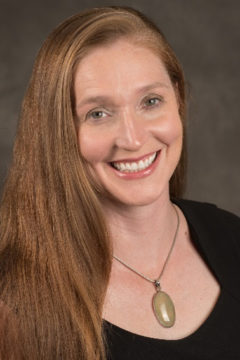 As Local Energy Program Manager, Megan Levy has spent more than a decade working on building energy efficiency with the low-income weatherization program and with the Wisconsin Office of Energy Innovation. As the state’s Energy Emergency Assurance Coordinator, she oversees the Energy Independent Communities program with more than 147 member communities. Megan designed and is the manager of the Municipal Energy Efficiency Technical Assistance Program (MEETAP), which provides expertise to municipalities, tribes, and schools across the state to facilitate successful energy efficiency projects. A graduate of the University of Wisconsin-Madison, she has held both regional and national leadership roles. In 2016-17, she served on the Board of Directors of the Midwest Renewable Energy Association; in 2017, she was named Co-Chair of the Energy Security Committee of the National Association of State Energy Officials.
As Local Energy Program Manager, Megan Levy has spent more than a decade working on building energy efficiency with the low-income weatherization program and with the Wisconsin Office of Energy Innovation. As the state’s Energy Emergency Assurance Coordinator, she oversees the Energy Independent Communities program with more than 147 member communities. Megan designed and is the manager of the Municipal Energy Efficiency Technical Assistance Program (MEETAP), which provides expertise to municipalities, tribes, and schools across the state to facilitate successful energy efficiency projects. A graduate of the University of Wisconsin-Madison, she has held both regional and national leadership roles. In 2016-17, she served on the Board of Directors of the Midwest Renewable Energy Association; in 2017, she was named Co-Chair of the Energy Security Committee of the National Association of State Energy Officials.
Beyond the office, Megan has for 20 years demonstrated a different kind of energy as chanteuse of her four-piece band, Madison Red, performing jazz, jump blues and swing across the state.
October 27, 2020 at 7:30pm – Online Event
Dress Rehearsal for the Climate Change Crisis
Connie Mutel
Univ. of Iowa Institute of Hydraulic Research
Science writer Connie Mutel will draw parallels between the COVID-19 pandemic and the current and future effects of climate change, in terms of scientific understanding, public perceptions and governmental responses. What can we learn from COVID-19 to help us prepare for the climate of the future? How can we communicate effectively and motivate constructive responses to both the nearer-term COVID-19 crisis and the emergent but longer-term climate change crisis?
Before her retirement, Connie was a senior science writer and archivist in Iowa’s Institute of Hydraulic Research. She has completed eight books, including A Sugar Creek Chronicle: Understanding Climate Change from a Midwestern Woodland (2016), many of which focus on Iowa’s ecology. Connie and her professor husband are longtime residents of Iowa City, where they live on 18 acres of oak-hickory woodland. She writes about the natural world and the destruction of it, calling Iowa “the most modified landscape in the world.” Unlike many scientists, Connie enjoys writing, integrating essay style into science writing. As a “deeply spiritual person” she sees it as process, beauty, and deeply meditative. So many converging environmental problems are currently and simultaneously at work – like climate change, floods, pandemics. She writes and speaks to help others understand that we are at a turning point for our planet.
September 27, 2020 at 10:30am – Online Event
Some Root Causes of Social Injustice Associated with Pandemics
Prof. Josh Garoon
UW-Madison, Community & Environmental Sociology
UW Assistant Professor Josh Garoon (Dept. of Community & Environmental Sociology) will outline social and economic impacts of COVID-19, highlighting the disproportionate negative effects on people already disadvantaged. These negative impacts are in some cases the direct result of policies, and could be remedied. His focus is primarily the United States, but he includes a brief comparison with causes of social injustice in Zambia.
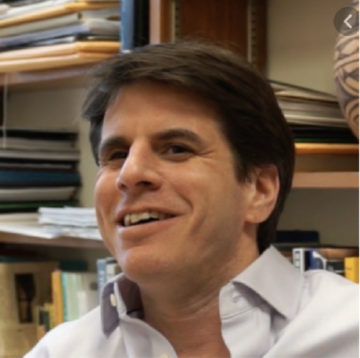 Josh Garoon, Assistant Professor of Community and Environmental Sociology, UW-Madison, studies the fundamental causes of health inequalities in United States and Africa (Zambia). He teaches courses in public health and in the sociology of international development, environment, and sustainability, and conducts community-based research on these topics. He has a PhD from the John Hopkins School of Public Health and an undergraduate degree from Harvard. He has been awarded a UW-Madison Teaching & Learning Excellence Fellowship.
Josh Garoon, Assistant Professor of Community and Environmental Sociology, UW-Madison, studies the fundamental causes of health inequalities in United States and Africa (Zambia). He teaches courses in public health and in the sociology of international development, environment, and sustainability, and conducts community-based research on these topics. He has a PhD from the John Hopkins School of Public Health and an undergraduate degree from Harvard. He has been awarded a UW-Madison Teaching & Learning Excellence Fellowship.
This session is co-sponsored by the Caring for Creation and Caring for Social Justice programs of Bethel Lutheran Church.
July 21 at 7pm – Online Event
Preventing the Next Pandemic: Urgency for a Planetary Health Approach
Professor Jonatha Patz, a co-recipient of the 2007 Nobel Peace Prize
 Connect online to a special video event sponsored by Bethel’s Caring for Creation and Caring for Social Justice groups. The centerpiece is an encore presentation of Professor Jonathan Patz’s brilliant 2020 Earth Day talk that links two urgent global concerns: the threats to human health from viral pandemics and environmental degradation. As relevant now as it was in April, the presentation will be hosted live by two members of Bethel’s re-opening task force, Craig Gjerde and Greg Moses, who will also respond to viewers’ questions after the video presentation. This event will occur this week only in lieu of Pastor Mike’s usual Tuesday Fireside Chat.
Connect online to a special video event sponsored by Bethel’s Caring for Creation and Caring for Social Justice groups. The centerpiece is an encore presentation of Professor Jonathan Patz’s brilliant 2020 Earth Day talk that links two urgent global concerns: the threats to human health from viral pandemics and environmental degradation. As relevant now as it was in April, the presentation will be hosted live by two members of Bethel’s re-opening task force, Craig Gjerde and Greg Moses, who will also respond to viewers’ questions after the video presentation. This event will occur this week only in lieu of Pastor Mike’s usual Tuesday Fireside Chat.
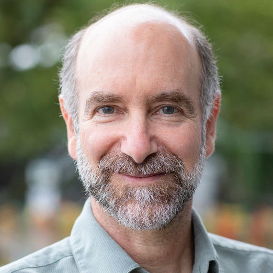 UW-Madison Professor Jonathan Patz, a co-recipient of the 2007 Nobel Peace Prize, is one of the world’s leading authorities on public health, especially its relation to environmental and climate change.
UW-Madison Professor Jonathan Patz, a co-recipient of the 2007 Nobel Peace Prize, is one of the world’s leading authorities on public health, especially its relation to environmental and climate change.
Plagues and pandemics are not only part of our culture–they are caused by it. Viral diseases like Ebola, HIV-AIDS, Dengue fever and now COVID-19 originate in animal hosts but spill over to and spread among humans when environmental factors align. These factors include urbanization, international travel, pollution, and land-use and climate changes. Restoring planetary health will reduce the risk of future pandemics and benefit human health in many ways.
Feb 23 at 10:15am in Borgwardt Hall
Preserving Special Places in Wisconsin
Mary Jean Huston, Wisconsin State Director, The Nature Conservancy
 “Preserving Special Places in Wisconsin” is a growing challenge as human activities degrade our natural environment and landscape. Mary Jean Huston, the longtime Director of the Nature Conservancy in Wisconsin, will help us understand the role of public and private support in protecting the outdoors from human degradation. She will explain how conservation-funding programs – especially the State of Wisconsin-sponsored Knowles-Nelson Stewardship Program – protect such places. In particular she will describe the history of increasing and decreasing support of that program, its current status, and how it and other Wisconsin efforts compare with and also support similar efforts in other places. The important role of land trusts will also be highlighted.
“Preserving Special Places in Wisconsin” is a growing challenge as human activities degrade our natural environment and landscape. Mary Jean Huston, the longtime Director of the Nature Conservancy in Wisconsin, will help us understand the role of public and private support in protecting the outdoors from human degradation. She will explain how conservation-funding programs – especially the State of Wisconsin-sponsored Knowles-Nelson Stewardship Program – protect such places. In particular she will describe the history of increasing and decreasing support of that program, its current status, and how it and other Wisconsin efforts compare with and also support similar efforts in other places. The important role of land trusts will also be highlighted.
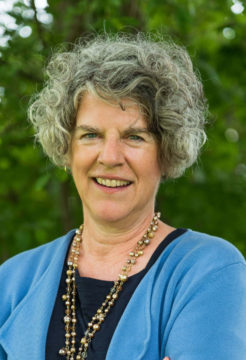 Mary Jean Huston, State Director, Emerita, The Nature Conservancy’s Wisconsin chapter has been employed by the Nature Conservancy in increasingly responsible positions across several states and the Midwest Regional Office until her retirement in November 2019.
Mary Jean Huston, State Director, Emerita, The Nature Conservancy’s Wisconsin chapter has been employed by the Nature Conservancy in increasingly responsible positions across several states and the Midwest Regional Office until her retirement in November 2019.
As Wisconsin Nature Conservancy Director, Huston was responsible for the overall direction and management of the program. Included among her most significant accomplishments in that role are completing the 64,000-acre Wild Rivers Legacy Forest working forest easement; leading a conservation campaign that raised $31.7 million in four years; maintaining a strong statewide Knowles Nelson Stewardship Program (public funding for land protection); bringing federal funds to Wisconsin for conservation priorities; and launching the North America Regional Initiative of the global Alliance for Water Stewardship.
Jan 12 at 10:15am in Fireside Gallery
The Future of Nuclear Power in a Carbon-Constrained World
Michael Corradini, UW Distinguished Professor Emeritus, Engineering Physics
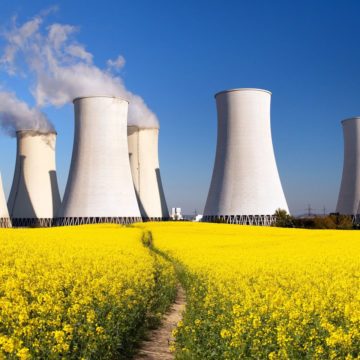 America is ambivalent about nuclear power despite its major contribution to the nation’s energy supply for seventy years without a disaster or fatality. Disasters abroad, bankrupt and dismantled plants, failed construction projects, plus fear of nuclear waste have led some to view nuclear power as a dying industry. A very different point of view is held by Professor Michael Corradini, a distinguished nuclear engineer and co-author of a major policy study on the future of nuclear power. This study concludes, “The main value of nuclear power going forward is its potential contribution to the decarbonization electrical power production” (that is, the near elimination of greenhouse gas emissions). Nuclear’s unique contribution is to provide large amounts of non-carbon “dispatchable” electricity to fill the gaps in availability of solar and wind renewables on a daily and seasonal basis. The study proves that without the balancing nuclear contribution, the way to deep decarbonization becomes prohibitively expensive. Corradini is aware that new nuclear capacity in the U.S. is currently too expensive, but the study identifies new technology (such as smaller modular reactors) which is under development. He will describe the technical, business and government action needed for our future.
America is ambivalent about nuclear power despite its major contribution to the nation’s energy supply for seventy years without a disaster or fatality. Disasters abroad, bankrupt and dismantled plants, failed construction projects, plus fear of nuclear waste have led some to view nuclear power as a dying industry. A very different point of view is held by Professor Michael Corradini, a distinguished nuclear engineer and co-author of a major policy study on the future of nuclear power. This study concludes, “The main value of nuclear power going forward is its potential contribution to the decarbonization electrical power production” (that is, the near elimination of greenhouse gas emissions). Nuclear’s unique contribution is to provide large amounts of non-carbon “dispatchable” electricity to fill the gaps in availability of solar and wind renewables on a daily and seasonal basis. The study proves that without the balancing nuclear contribution, the way to deep decarbonization becomes prohibitively expensive. Corradini is aware that new nuclear capacity in the U.S. is currently too expensive, but the study identifies new technology (such as smaller modular reactors) which is under development. He will describe the technical, business and government action needed for our future.
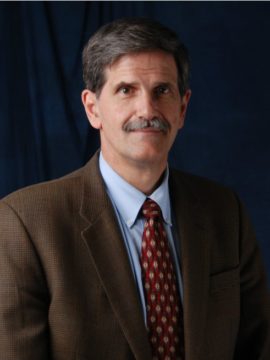 Michael L. Corradini is an expert on nuclear engineering and energy policy issues. He is a co-author of the recent study, “The Future of Nuclear Energy in a Carbon Constrained World” with colleagues from the Massachusetts Institute of Technology. This study definitively explores the potential contribution of nuclear power to the fight against climate change. Corradini is Emeritus Professor of Nuclear Engineering and Engineering Physics at the University of Wisconsin, and was Department Chair from 2001-2011 and a founder of the Wisconsin Energy Institute. His scientific interests emphasize reactor operation, reactor safety, reprocessing, and risk assessment. He has served on many national policy bodies including the Department of Energy Nuclear Energy Advisory Committee.
Michael L. Corradini is an expert on nuclear engineering and energy policy issues. He is a co-author of the recent study, “The Future of Nuclear Energy in a Carbon Constrained World” with colleagues from the Massachusetts Institute of Technology. This study definitively explores the potential contribution of nuclear power to the fight against climate change. Corradini is Emeritus Professor of Nuclear Engineering and Engineering Physics at the University of Wisconsin, and was Department Chair from 2001-2011 and a founder of the Wisconsin Energy Institute. His scientific interests emphasize reactor operation, reactor safety, reprocessing, and risk assessment. He has served on many national policy bodies including the Department of Energy Nuclear Energy Advisory Committee.
Nov 24 at 10:15am in Borgwardt Hall
Wisconsin’s Fresh Water Is Getting Salty
Hilary Dugan, Assistant Professor, UW-Madison Center for Limnology
Our common dependence on water in all its uses – personal, commercial, recreational – make Wisconsin waters a concern for all of us: a resource crucial to a sustainable future.
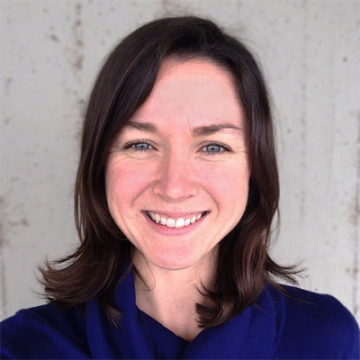 Caring for Creation (C4C) is hosting a forum at Bethel on Nov 24 (Borgwardt Hall, 10:15am) that will focus on one aspect of these concerns. Hilary Dugan, assistant professor at the Center for Limnology at the University of Wisconsin – Madison, will present “Wisconsin’s Freshwater Is Getting Salty.” Road salt is often thought of as an “environmentally safe” chemical. However, at high concentrations, chloride can alter aquatic ecosystems by stressing freshwater species, and by deteriorating drinking water sources. For 70+ years, we have applied road salt to paved surfaces, without any regard for the environmental consequences. This forum will focus on long-term chloride trends and the state of our lakes in Wisconsin with regard to chloride contamination.
Caring for Creation (C4C) is hosting a forum at Bethel on Nov 24 (Borgwardt Hall, 10:15am) that will focus on one aspect of these concerns. Hilary Dugan, assistant professor at the Center for Limnology at the University of Wisconsin – Madison, will present “Wisconsin’s Freshwater Is Getting Salty.” Road salt is often thought of as an “environmentally safe” chemical. However, at high concentrations, chloride can alter aquatic ecosystems by stressing freshwater species, and by deteriorating drinking water sources. For 70+ years, we have applied road salt to paved surfaces, without any regard for the environmental consequences. This forum will focus on long-term chloride trends and the state of our lakes in Wisconsin with regard to chloride contamination.
Dugan will identify what lakes are at risk, and what is currently being done locally in Madison and Wisconsin to curtail further environmental damage. As a limnologist, Hilary studies how terrestrial and atmospheric changes, such as warming air temperatures or land use patterns, alter biogeochemical fluxes and aquatic processes in lakes. Her research balances field-based programs with analytical models, and the application of geophysical and geospatial tools.
February 10, 2019
MGE Energy 2030: Working for Sustainability
Leah Samson, MGE Residential Services Manager
MGE is an investor-owned, regulated utility which provides electricity to all of Madison and surrounding suburbs, and gas service to a wider area. It is our energy lifeline, providing us very reliable power and warmth. It now has added the objective of fulfilling our local responsibility to fight climate change. MGE is shouldering this job through its Energy 2030 framework which is aligned to meet the goals of the U.S. Mid-Century Strategy for Deep Decarbonization.
The headline goal is to generate 30% of its power from renewable sources by 2030, most of which will be from new construction. Already, MGE has invested $100 million in the 66 megawatt (MW) Saratoga wind farm in Iowa, and will create 100 MW more in two solar installations in Wisconsin. MGE is also committed to facilitating a 40% reduction in the greenhouse gas emissions of its customers by 2030 and 80% by 2050. To make this happen, MGE is encouraging energy conservation and supporting the sustainability plans of Madison and Dane County. It also expects to remain a strong business from economic growth and new energy demands from electric cars and buses.
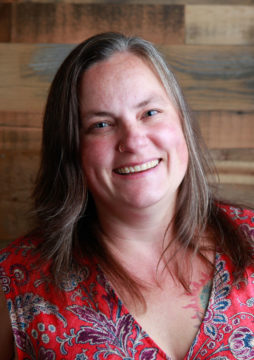 Leah Samson, MGE Residential Services Manager, is an energy geek at MGE with a passion for sustainability and energy efficiency. In her current position at MGE she educates and engages customers about their energy use. She attended UW-Madison and has a degree in mechanical engineering. Previously she owned a sustainability consulting firm where she provided green building consulting and sustainability planning for clients.
Leah Samson, MGE Residential Services Manager, is an energy geek at MGE with a passion for sustainability and energy efficiency. In her current position at MGE she educates and engages customers about their energy use. She attended UW-Madison and has a degree in mechanical engineering. Previously she owned a sustainability consulting firm where she provided green building consulting and sustainability planning for clients.
January 13, 2019
Madison Lakes: Challenges Facing These Local and Regional Treasures
Steve Carpenter, UW Madison Emeritus Professor of Limnology and Environmental Science
Professor Carpenter describes himself as a free-range scientist who studies whole ecosystems. The Yahara River flowage that includes the Madison Lakes has been a primary interest of his for many years. He and others recently completed a project called Yahara 2070. It is an exploration of potential futures for water, ecosystems, and people in Wisconsin’s Yahara Watershed. The researchers analyzed large amounts of information to better understand the long-term impacts on our lakes of social and environmental change. He will engage us in a crucial conversation about the alternative futures for this key resource. This will help us understand how our personal actions and group decisions will determine whether the future conditions will be improving, stable, or degrading.
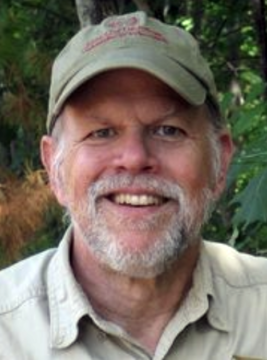 Professor Carpenter is a member of the U.S. National Academy of Sciences and a Fellow of the American Academy of Arts and Sciences and a recipient of awards for excellence including the Stockholm Water Prize for global contributions to water science. Mark your calendar for January 13 and plan to bring a friend!
Professor Carpenter is a member of the U.S. National Academy of Sciences and a Fellow of the American Academy of Arts and Sciences and a recipient of awards for excellence including the Stockholm Water Prize for global contributions to water science. Mark your calendar for January 13 and plan to bring a friend!
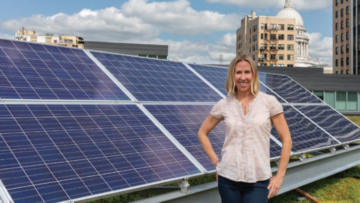 November 18, 2018
November 18, 2018
Meeting Madison’s Sustainability Goal
Jeanne Hoffman, Sustainability Manager, City of Madison
Jeanne notes that national efforts to fight climate change by reducing greenhouse gases are stagnating. However, the City of Madison has joined with 84 other American cities to take up the task by eliminating greenhouse gas emissions by joining the Ready for 100%— a campaign to set a goal of achieving 100% renewable energy. Jeanne Hoffman staffs the Madison Sustainability Committee to make that happen by systematically reviewing city operations to determine the most cost-effective measures available. Already, the city has taken a major step to offset its electric power purchases from the grid by investing $1.4 million in a new solar farm.
The City of Madison not only focuses on making City facilities and operations more energy-efficient, the City is also working with the community, other government groups and business leaders to increase sustainability in natural systems, climate and energy, transportation, culture and art, education, and a whole host of areas that obviously go well beyond what the city has direct control over. The City has incorporated renewable energy into the City’s zoning code.
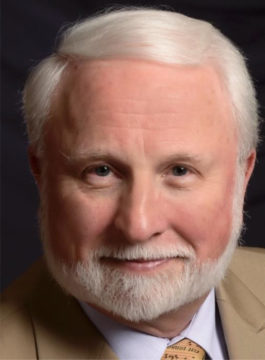 October 7, 2018
October 7, 2018
Cars, Trucks and the Environment
Todd Fansler retired as Director of the Propulsion Systems Research Lab at General Motors R&D Center. He is now an Honorary Fellow at UW’s Engine Research Center
When will electric cars push the century-old internal-combustion engine into the junkyard of history? Does “zero-emission” = “non-polluting”? How badly do car and truck emissions affect the environment, anyway? Or is that all just a Chinese hoax? Join an auto-industry “lifer” to learn more about this pervasive technology that affects us all. Expect a few surprises!

April 21/22, 2018
Earth Day Stewardship
John Kutzbach, Professor Emeritus, UW Center for Climatic Research, Nelson Institute
Sermon at all services
Caring for Creation (C4C) will be organizing an Earth Stewardship Sunday here at Bethel on April 22. April 22 is Earth Day nationwide and around the world.
The theme of the sermon on this Sunday will be Earth Stewardship. UW Professor Emeritus John Kutzbach, a member of the C4C Committee here at Bethel, will preach at all services on April 21 and 22. He will emphasize the Earth and Nature, as one of the Four Harmonies highlighted in the Bethel Bible Series and at Bethel Horizons: Harmony with God, Self, Others and Nature. The importance and the blessings of the Natural World are a central theme of the Genesis narrative, and this importance is echoed in the Psalms and in the warnings of Prophets when we fall short in our caring for God’s creation.
C4C is completing three years of bringing a series of outstanding speakers to Bethel to discuss various topics of C4C including clean water, clean air, renewable energy, livable cities, sustainable agriculture, future directions in agriculture, global health, the dangers of climate change, and much more.
In Nov 2017 we started our third year of offerings with UW Professor Emeritus Cal DeWitt preaching on God’s gifts of creation and our stewardship responsibilities. The sermon on this Earth Day Sunday will reinforce those themes.
John Kutzbach is a member of the National Academy of Science and is known nationally and internationally for his research on climate and climate change, including the importance of climate as part of the natural environment. Kutzbach will lead a post-sermon discussion at 10:15am.
 March 4, 2018
March 4, 2018
Climate Change Impacts on Global Health
Jonathan Patz, Director UW Global Health Institute
Dr. Jonathan Patz will continue Caring for Creation’s (C4C) exploration of climate change in a March 4 presentation on “Impacts on Global Health” at 10:15am in Borgwardt Hall. The global climate crisis poses large risks to public health through many exposure pathways, from heatwaves and air pollution to malnutrition, infectious diseases, and social dislocation. Yet, climate change mitigation policies could potentially have enormous public health benefits. In short, climate change presents large human health risks, while climate change actions, offer health benefits – possibly the greatest health opportunities in more than a century.
Dr. Patz is Professor and Chair in Health & the Environment at UW-Madison, where he also directs the Global Health Institute. His pioneering work on the connections between health and the global environment have made him a recognized international authority in that field. His considerable accomplishments include serving as a lead author for the United Nations Intergovernmental Panel on Climate Change (IPCC) – co-recipient with Al Gore of the 2007 Nobel Peace Prize. For an overview of global health impacts of climate change, see Dr. Patz’s Nov 2017 TEDx talk.
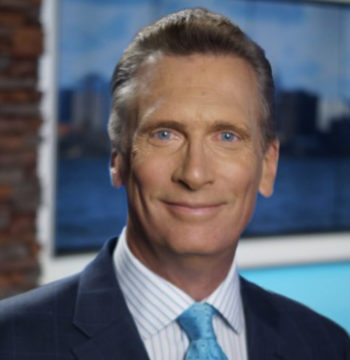 February 18, 2018
February 18, 2018
Climate Change Impacts on Madison and Wisconsin
Bob Lindmeier, Chief meteorologist at WKOW, ELCA Synod Speaker
Caring for Creation (C4C) is starting out the new year with an informative presentation by Bob Lindmeier. Bob has presented the weather at WKOW-TV for the past 37 years and belongs to the ELCA South-Central Synod of Wisconsin’s Care for God’s Creation team. In his many years as an atmospheric scientist Bob has closely followed the issue of climate change. He will talk about
- The focus and actions of the Synod’s Care for God’s Creation team
- How humans are causing climate change
- Many impacts of climate change, especially on a local level.
- The overwhelming consensus in the scientific community.
- What you can do to be part of the solution.
- The need to put a price on carbon.
Bob Lindmeier, is a member of the American Meteorological Society and has the AMS Television Seal of Approval. Bob is a member of the synod’s speaker’s bureau. He is also a member of Citizen’s Climate Lobby, which advocates for a Carbon Fee and Dividend climate solution.
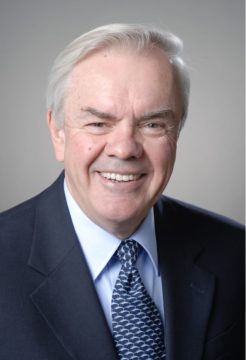 November 18/19, 2017 – 9th Major Sunday
November 18/19, 2017 – 9th Major Sunday
Entrusted: All is God’s
Cal DeWitt, Professor Emeritus, Environmental Sciences
Sermon at all services
May 7, 2017
Challenges of Feeding the World in 2050
Molly Jahn, Prof., UW College of Agriculture and Life Sciences, Dep’t. of Genetics
The world’s interconnected global markets, burgeoning appetites and an increasingly variable climate have already started to levy a heavy burden on our food systems that deliver safe, nutritious, and accessible food. The present famines in Somalia, South Sudan, Nigeria and Yemen serve as tragic reminders that our stunningly successful focus on increasing agricultural yields in the 20th century is not all that’s required for food security and stable global food systems. Dr. Jahn will discuss current perspectives on our global and local food systems and describe strategies being pursued around the world to steer our future toward healthier and more secure outcomes for all.
Molly Jahn is a professor in the Department of Agronomy, the Center for Sustainability and the Global Environment, and the Global Health Institute at the University of Wisconsin-Madison where she also served as dean of the College
April 30, 2017
(Re)Creating Our Resilient Regional Food System – Healing the Rural/Urban Divide
Michelle Miller, Associate Director of Programs, UW Center for Integrated Agricultural Systems
Before refrigerated trucks, the federal highway system and irrigation projects, most of a city’s food came from the region surrounding it. No more. Today, much of our fresh fruit and vegetables are grown on large farms with poor labor conditions, and travel from distant coastal states and Mexico. As this national food supply chain grew, regional food networks withered. We are exploring ways to renew our regional food system so that it can undergird the national system and make it more resilient. These approaches hold promise for supporting entrepreneurial businesses and reconnecting cities with their rural regions.
Michelle Miller is at the UW-Madison Center for Integrated Agricultural Systems, the sustainable agriculture research center. A Wisconsin native, she is an economic anthropologist engaged in participatory research with farmers and others who create our food system. Her current projects focus on labor and land tenure, agriculture of the middle and regional food economies, food freight logistics, resiliency and climate change.
April 2, 2017
Healthy Food, Healthy Land, and Supply Chain Sustainability
Bill Berry, Writer, Editor: Conservation, Agriculture and Rural Issues
Government programs seek to encourage sustainable environmental practices on America’s farms and ranches. The marketplace, however, may provide more opportunities to accomplish these same goals. Consumers drive the decisions of major corporations, and many consumers are asking for healthy food grown in a sustainable manner. This has led corporations like General Mills and Coca Cola to adopt sustainability platforms and develop products and production procedures that appeal to people who are concerned about how their food is grown. We will explore this growing trend and what it means across the supply chain.
Bill Berry has spent most of his life communicating about conservation of natural resources, at daily newspapers in Wisconsin and with conservation groups at the state and national level. He writes a regular column for The Capital Times of Madison. He lives in Stevens Point.
March 12
Expanding Local Food Access to Consumers, Schools & Businesses
Helen Sarakinos, Executive Director of the REAP Food Group
Join us for this important talk in this year’s Caring for Creation series on “Farming, Food, and Responsible Fruitfulness”. Plan to bring a friend!
Helen is a seasoned advocate and organizer for issues that impact our community’s kids, citizens, food, and water. In her presentation at Bethel, she will talk about the work of REAP Food Group, which has become a leader in the local food movement and now connects farmers & producers, restaurants, healthcare institutions, schools & students, consumers, and the community-at-large to support Southern Wisconsin’s local food system.
REAP’s current programs include Farm to School, Buy Fresh Buy Local Southern Wisconsin, which connects local farms and producers to institutional purchasers, and the Southern Wisconsin Farm Fresh Atlas, a guide for consumers to local food. REAP approaches food system change at every level in order to increase the access to local food while building a food chain that is environmentally and economically sustainable.
February 12
Safeguarding Wisconsin’s Waters: Quality, Supply and Healthy Ecosystems
Jane Elder, Executive Director of the Wisconsin Academy of Sciences, Arts and Letters
Join us for this important talk in this year’s Caring for Creation series on “Farming, Food, and Responsible Fruitfulness”. Plan to bring a friend!
Jane Elder will talk about challenges related to safeguarding Wisconsin’s waters. She will look at water supply, water quality, and aquatic habitat. Her talk will be based on the Academy’s recently published Shifting Currents report, which includes an overview of gains and setbacks in Wisconsin water policy and practice over the last 15 years. This report also highlights emerging concerns, examines the context for decision-making around water management and protection, and explores root causes that influence water conditions and policy in Wisconsin.
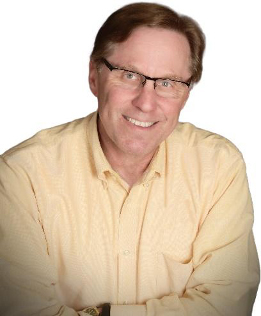 January 15, 2017
January 15, 2017
Second Harvest
Dan Stein, CEO/President, Second Harvest of Southern Wisconsin
Food banks assist hunger relief agencies by focusing on finding large sources of food, storing it and redistributing it. This allows relief agencies such as food pantries, homeless shelters and soup kitchens to focus on what they do best, directly serving those in need. Studies show that as much as 40% of all food produced in this country is wasted. Food banks help reduce that wastage. Today, in addition to feeding more than 100,000 people in Southern Wisconsin, Second Harvest has begun forming collaborative partnerships with the medical community in addressing potentially significant physical and emotional health problems caused by food insecurity and preventing them when possible.
Dan Stein is President and CEO of Second Harvest Foodbank of Southern Wisconsin and a member of Bethel.
November 13, 2016
The Intersection of Energy and Food Production
Gary Radloff, Director of Midwest Energy Policy Analysis, UW Wisconsin Energy Institute
Biofuels fuel produced from plants have strengthened our energy security. Biofuels provide about five percent of our transportation fuel and reduce emissions of greenhouse gases. But corn ethanol production now takes 40% of the crop, which has increased world grain prices. Alternative biofuels from wood and grass and biogas from animal waste have a foothold in Wisconsin and might become much bigger with the aid of research and leadership from UW and the Great Lakes Bioenergy Research Center.
Gary Radloff is the Director of Midwest Energy Policy Analysis at the University of Wisconsin Energy institute.
October 16, 2016
Food, Land, & Water: Can Wisconsin Find its Way?
Jim Matson, Chief Counsel, Retired, Wisconsin Dep’t. of Agriculture, Trade and Consumer Protection
Our food system is under stress, and so are the natural resources that sustain it. Where do we go from here? In the first lecture/discussion of this year’s series, “Farming, Food, and Responsible Fruitfulness,” Jim Matson will discuss trends in food consumption and waste; the economics of food production; the conflicting needs between food production, energy and development; and the need for clean and abundant water. God’s creation is both diverse and vulnerable and needs our stewardship. Jim will have time to answer your questions after the lecture and we invite you to continue the discussion at the Core Group meeting, October 19, Wednesday, 6:30pm at Bethel. Find the whole schedule of the series in the September 21 Bethelite and below.
Jim Matson was a driving force in the two-year statewide project to evaluate the most responsible paths to a sustainable future for Wisconsin’s critical natural resources. In his 36-year career at the Dept. of Agriculture, Trade and Consumer Protection, 28 years as chief legal counsel, Jim developed regulatory policy for food, environment, disease control and consumer protection, including the Working Lands Initiative.
 Ecological Boundaries: from Wisconsin to the World
Ecological Boundaries: from Wisconsin to the World
John Kutzbach, UW Center for Climatic Research, Nelson Institute
The ecology, environment and climate of our state, our country and the world are changing rapidly. The vital reserves of land, life, food, water, air and ocean are threatened. We know why these events are happening because earth science provides accurate scenarios of the past, present and future. We know that things will get much worse if we do nothing. We know how to tackle the problem. But will we?
John Kutzbach is professor emeritus of climate and the environment, University of Wisconsin, still engaged in climate research, and a member of Bethel. He is a member of the National Academy of Sciences.
Get on Board the Solar Train
Michael Vickerman, Program and Policy Director RENEW Wisconsin
Michael Vickerman, Program and Policy Director of RENEW Wisconsin, advances the interests of renewable energy producers and purchasers in legislative and regulatory proceedings, as well as public forums. Under his direction, RENEW formulated and mobilized political support for major pro-renewable policies, including a statewide 10% renewable requirement by 2015. Solar power industry provides a cost-effective source of electricity for business and institutional customers and employs more than 200,000 people nationally.
Pedestrians, Bikes & Cities
David Cieslewicz, Wisconsin Bicycle Federation, Mayor of Madison 2003-2011
Dave Cieslewicz served two terms as mayor of Madison where he set the city on a path for Platinum status as one of the best biking cities in North America. Before that he started his own nonprofit, 1000 Friends of Wisconsin, which focuses on land use and transportation policy. He has been an adjunct professor at the UW Madison’s Department of Urban and Regional Planning where he teaches a class called Bikes, Pedestrians and Cities. He pronounces his name chess LEV ich, but nobody else does.
 Caring for Creation: Earth-Wise
Caring for Creation: Earth-Wise
Cal DeWitt, UW Institute for Environmental Studies
To watch the video of this presentation click here.
Future of the Yahara Watershed and Madison Lakes
Jennifer Seifert and Eric Booth, Water Sustainability and Climate Project, UW-Madison
The Madison area is changing fast. The decisions we make today that impact our land and water will also impact the well-being of future generations. How can we ensure we are making good choices? A UW-Madison research team has developed scenarios, or plausible stories about the future, depicting ways the region could change by 2070. These scenarios help us understand potential impacts on land and water and facilitate discussions about a desirable future. Visit Yahara2070.org.
Madison in Motion
David Trowbridge, Transportation Policy & Planning Manager, City of Madison, Planning Division
David Trowbridge will talk about “Creating a Livable City for the Next Generation: The role of Transportation in the Madison Urban Area.”
Whereas the previous talk in the Caring for Creation series examined potential human impacts on land and water in the Madison area, this presentation will focus on challenges and solutions for our city environment where most of us spend much of our time.

